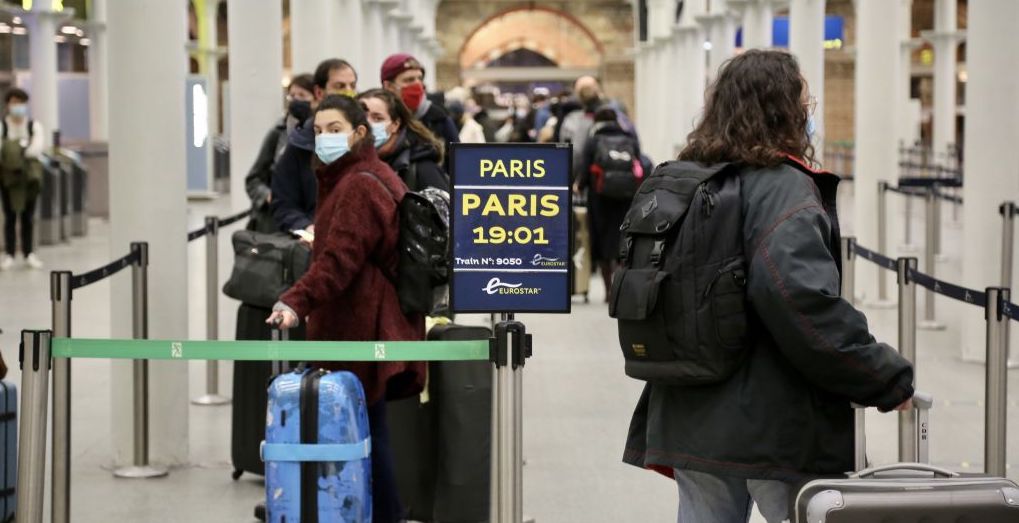There’s a new Covid mutant strain in the air, with a name that only a taxonomist would love: VUI-202012/01; for now, let’s call it “VUI” — hopefully we won’t end up calling it COVID-21.
There is an observed epidemiological effect of the VUI mutations, as described by the rapid increase in incidence of the strain in multiple UK locales; however, there is not yet much in the way of empirical laboratory evidence of a mutational functional effect (eg, repeated viral replication studies; animal transmission studies, etc), like we have seen with the spike-D614G mutation that has dominated the pandemic since its arrival in Europe in early 2020.
So, given what we know, the question is: are the new UK shutdowns and travel bans from the UK warranted?
If this variant strain does indeed have significantly increased transmissibility, then invariably more cases will occur in even a shorter period of time and the effectiveness of track and trace programmes will be essentially nil; therefore, public health energy and effort should be specifically targeted at protecting those most likely to suffer serious disease and death.
This virus is already nearly impossible to actually stop (due to its asymptomatic presence and ability to superspread like the common cold), except with the most extreme lockdown measures (Note: as an epidemiologist, I am opposed to general lockdowns due to the severe negative social, psychological and economic consequences they directly cause; targeted closures such as pubs can provide benefit, but again, not without harm).
Given the current statistics, the total number of cases with the variant is likely much, much higher than is known, and it is likely already in many locales outside of the UK, where it has not yet been detected (largely because most places in Europe and US don’t have a comprehensive genomic sequencing effort like the UK, so most cases will never be identified as being VUI); therefore, travel bans now are closing that proverbial barn door after the viral-horses have bolted … again. That said, I think countries and states should be sequencing all cases arising in recent travellers from the UK and possibly EU, to get a better view on this. I am working with local health departments over here in the US to do the same.
Given that there is no known VUI-associated increase in disease severity (and perhaps an actual increase in milder cases in younger age groups), my recommended strategy would remain unaltered: general tactics for everyone (e.g., masking and distancing; limiting crowd size and family visitors, and limits on hospitality venues such as pubs) and focused tactics for the highest risk strategies (e.g., protection of the elderly through strictest safety protocols in nursing homes; vaccine to the elderly and their caregivers first, etc). Schools should open after the holidays, but special emphasis should be placed on keeping teachers safe, mostly from each other (e.g., no huddling in the staff room), in order to keep classes going.
Most importantly, I would ask our leaders to remember that the battle is against the pandemic not the people (whether domestic or abroad), and they should aim to lead us as best they can, not radically alter civilisation. They could start by reminding us that we all have an individual role to play in this, depending on our risk level: if you are young and healthy, you should act like you’re a possible carrier and do the things appropriate to limit spread to other people and prevent spread to the highest risk. If you are elderly, or otherwise at high-risk for serious disease, then you should act like everyone else is a possible carrier and protect yourself.
I am a strong proponent of immunisations and I would remind both risk groups that immunisation will be a way out of acting like the above in the future. When we say “we are all in this together”, it’s not because we are a “collective” where no one person actually needs to assume responsibility, but rather we are a collection of individuals that can all make our own difference and help diminish the likelihood of Covid-21.
David M Engelthaler, PhD MS is Genomic Epidemiologist and a former public health official for the state of Arizona.










Join the discussion
Join like minded readers that support our journalism by becoming a paid subscriber
To join the discussion in the comments, become a paid subscriber.
Join like minded readers that support our journalism, read unlimited articles and enjoy other subscriber-only benefits.
Subscribe